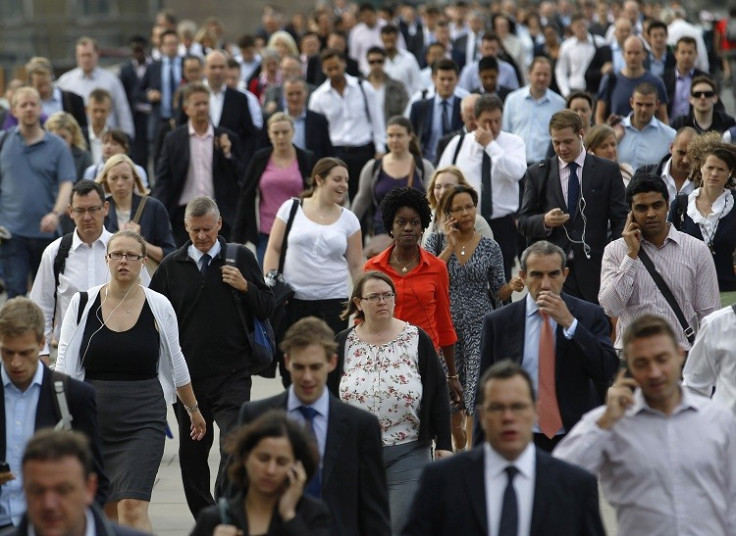UK Economic Recovery Entrenched but Productivity 'Remains Abysmal'

UK economic growth is set to slow sharply in 2015, according to a thinktank, though the recovery is now firmly entrenched.
The National Institute for Economic and Social Research (NIESR) said in its latest forecast that the UK economy will grow by 3% in 2014 before slowing to a 2.3% expansion in 2015.
But questions remain over the so-called "productivity puzzle", with a robust labour market but weak output per worker.
"The labour market continues to perform very strongly. Total employment is more than 4% higher than it was at the start of 2008, and the employment rate has returned to its 2005 peak," said the NIESR.
"We remain optimistic about further job creation and expect unemployment to fall below 6 per cent later this year, and real wages to begin to rise gradually.
"The productivity performance, therefore, remains abysmal. With output per hour worked still around 4.5% below the pre-crisis peak, we expect pre-crisis productivity levels to be regained only in the latter half of 2017– although, given the continuing puzzle about the causes of poor productivity performance, large uncertainties remain."
Wages are also weak. The Office for National Statistics (ONS) said total pay growth was just 0.7% in June 2014, well below price inflation of 1.9% - meaning wages are in real terms decline.
Bank of England policymakers have admitted they are unsure about what is causing this mix of decent employment data, but poor wages and productivity.
Minutes from the June meeting of the nine-member Monetary Policy Committee (MPC) show they considered two explanations.
The first is it may be taking longer than expected for a tightening in the supply of labour to filter down to pay and that wages would pick up soon, with increased productivity following higher pay.
A second is that the labour supply has actually increased, which is depressing pay.
"This would be the case if individuals were willing to accept lower hourly wages than before, work increased hours at the same pay rate, or extend their working lives," said the MPC minutes.
"Such decisions might have been prompted by a number of factors, including concerns about the adequacy of retirement provisions, changes to benefits or the weakness of current levels of income."
Policymakers concluded: "It was possible that elements of both explanations were at play to different extents in different parts of the labour market."
© Copyright IBTimes 2024. All rights reserved.






